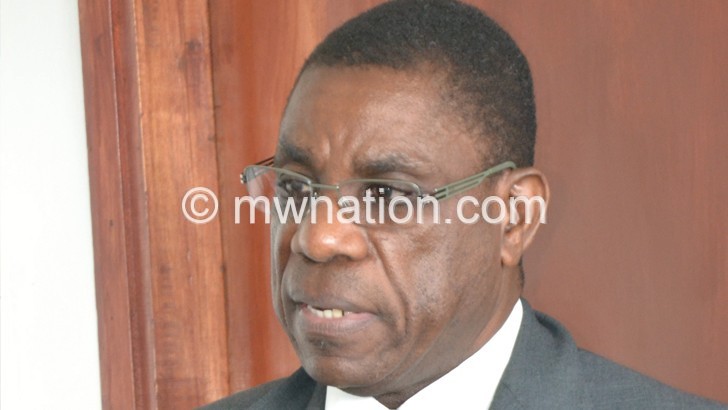Cost of living bites
With the cost of living rising by 46 percent as of May 2023 compared to the same period last year, the majority of the poor are grappling to make ends meet.
Individual consumers, consumer rights and governance bodies have since said the current status is a threat to Malawians livelihoods.

Centre for Social Concern (CfSC) data shows that the cost of living as of May 2023 was at an average of K377 892 for a family of six, up from K257 028 during a similar period last year.
Consumers have even been burdened further by the recent 50 percent increase in water tariffs by the country’s water boards effective July 1 2023.
As if this is not enough, the Electricity Supply Corporation of Malawi (Escom) has proposed a 69.7 percent tariff increase.
The Malawi Energy Regulatory Authority (Mera) will soon embark on public hearings as regards the proposal.
If Escom is granted its wish, it means consumers must brace for even more tough times ahead.
But Blantyre-based mobile money agent Gracious Galeta said in an interview life has already become unbearable following the high cost of living.
He said: “A lot of us out here are struggling to feed our families because life has become more expensive now. Personally, I am even struggling to pay rent.”
Silvia Jere, who sells fritters around Ginnery Corner in Blantyre, said she cannot remember when she last had a proper meal.
“Even the money I make from the sale of fritters is not enough to support my family, pay rent and for my child to go to school,” said the mother of one.

Due to the high cost of living, Jere stopped her Standard Seven child from going to school to support her sell fritters in Ndirande Township where she resides.
This, she fears, will impact on her child’s future.
Another Blantyre resident Tapiwa Siula said the adjustment in cost of living has adversely affected her.
She said in 2022, K10 000 would cover essentials to last her half a month. But now, Siula said she has to triple that amount to purchase such essentials.
Siula, a Lilongwe University of Agriculture and Natural Resources (Luanar) graduate, said: “Prices of goods in shops keep rising which means having to further adjust our budgets. This is lessening my disposable income that I have to spend.”
Lilongwe resident Fred Kantande, a physiotherapist, described as unfortunate that the cost of living has risen sharply.
“This means more pressure on the vulnerable; hence, increased crime. Such pressures are hugely contributing to increased mental health cases leading to more suicide cases which is common nowadays among the youth and young adults,” he said.
Mzuzu resident Gomezgani Nyirenda echoed Kantande’s frustrations.
He said: “For an unemployed person like me, life is even worse. I know a lot of my fellow youths who are struggling due to the high cost of living and this is a cause for worry.”
Cross-border trader Eve Mzumara from Rumphi District said she hopes government will implement policies to alleviate Malawians’ suffering.
CfSC project officer Kondwani Hara in an interview said high inflation, currently at 29.2 percent, coupled with low industrial production will result in the continuous rise of the cost of living.
He challenged the government to act with speed in implementing short-term measures aimed at safeguarding Malawians from such economic uncertainties.
Among the short-measures, Hara suggested tax reduction, provision of subsidies and price controls on essential goods and services such as food, fuel and electricity to lower their cost to consumers. He also proposed establishment of temporary income support programmes such as social cash transfers and social welfare.
He said: “The government should increase agricultural productivity. Malawi relies heavily on agriculture. So, improving agricultural productivity can help lower food prices.”
Hara said while such measures can provide short-term relief, addressing the underlying causes of high cost of living in the long-term will require sustained efforts in areas such as economic diversification, investment in human capital and structural reforms.
Consumers Association of Malawi executive director John Kapito in an interview said while the cost of living is hurting Malawians, including the affluent, such a trend will continue considering that there is no strategy to bail out the economy.
Kapito said the challenge is that the Malawi Government consistently and continuously looks up to donors to bail them out which has huge negative implications on the poor.
“Donors will demand a huge devaluation of the kwachabefore any support is provided. Therefore, it is wishful thinking to expect this government to come up with any cushioning mechanisms considering that the government is already too broke,” he said.
However, Kapito said the government can immediately review the national budget and realign it to address the challenges people are facing and prioritise sectors that are key in cushioning people.
He pointed out that the government is currently implementing programmes beyond its means, over-borrowing for consumption as well as government officials undertaking unnecessary costly trips.
Youth and Society executive director Charles Kajoloweka in an interview said it is apparent that the cost of living has made it hard for a majority of Malawians to survive.
He said the situation is worse for the unemployed particularly the youth who constitute 51 percent of the population.
Said Kajoloweka: “It will be important that the government invests in social protection programmes for the most vulnerable groups. In this case, we are talking about the marginalised and the poor who will have to benefit from these social protection programmes.
“Because it’s about giving people the basic needs that they cannot really meet at the moment. So, broadening the social protection programmes targeting the most vulnerable is the way to go.”
He said government needs to revisit the tax regime as part of cushioning Malawians and ensure that some of the punitive taxes on basic commodities are reviewed.
This, he said, will allow a majority of the citizenry to access such basic needs.
“We have a lot of taxes on basic commodities so, maybe if the government extensively reviewed the taxes on these basic needs, it would be quite helpful,” said Kajoloweka.
He said they expect the government not to increase the burden of taxes on Malawians at a time the economy is struggling.
Kajoloweka further said there is a need to look at reducing expenses in government, citing luxuries such as presidential international trips with bloated entourages.
Minister of Information and Digitisation Moses Kunkuyu, who is also the official government spokesperson, said the government is working on improving the food situation and increasing exports through mega farms.
“Mining deals for Kayelekera and Phalombe are nearing conclusion, as quick wins. The long-term plan is to establish a development cooperation that will work with the private sector to venture into big manufacturing investment to create products for exports and increase exports.”
But Catholic Commission for Justice and Peace national coordinator Boniface Chibwana argued that policy misfits are to blame for the current situation.
He argued: “The social protection programmes are not helping matters at all because their implementation is marred by a lot of irregularities including poor beneficiary identification and targeting, corruption and several institutional and logistical inadequacies.”





